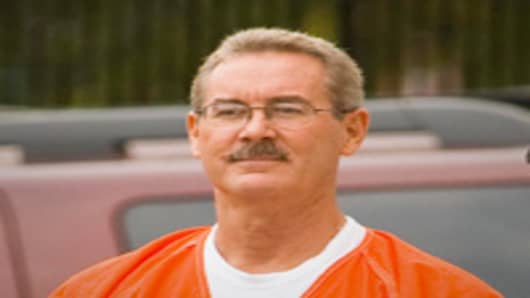Calling him “a ruthless predator responsible for one of the most egregious frauds in history,” federal prosecutors say Allen Stanford should receive the maximum sentence of 230 years in prison. Stanford, 62, was convicted in March of masterminding a $7 billion Ponzi scheme that lasted for more than 20 years. He is scheduled to be sentenced next week in Houston.
If U.S. District Judge David Hittner agrees with the recommendation, it would be the longest sentence for a white collar crime in U.S. history, far outstripping the 150-year sentence for confessed Ponzi schemer Bernard Madoff in 2009.
In a 34-page sentencing memorandum filed Wednesday, prosecutors note the “horrific consequences” of Stanford’s scam to investors.
“Through two decades of lies, Stanford caused billions in depositor funds to flow through his bank and then laundered stolen funds through a web of accounts around the world,” the filing says, adding that the maximum sentence is necessary to send a message of deterrence to “other executives and money managers” who are tempted to defraud their investors.
Defense attorneys have suggested Stanford be sentenced to time already served—he has been behind bars since his indictment three years ago this month. Prosecutors say that proposal displays “an audacity that only further illustrates his depravity.”
The filing alleges that as recently as last week, Stanford suggested he could sign over assets in Antigua in exchange for a lower sentence, even though prosecutors say those assets were purchased with investor funds. The filing does not say how that suggestion was made. Stanford’s attorneys were not immediately available for comment.
Investors plan to show up en masse at next Thursday’s sentencing hearing. Many have written letters to Hittner, and some investors will be allowed to speak in court. In addition, Stanford will be offered an opportunity to speak.
Stanford was convicted on 13 countsin connection with the scheme, and was acquitted on a single count of wire fraud. His attorneys have said he plans to appeal.
—By CNBC's Scott Cohn



